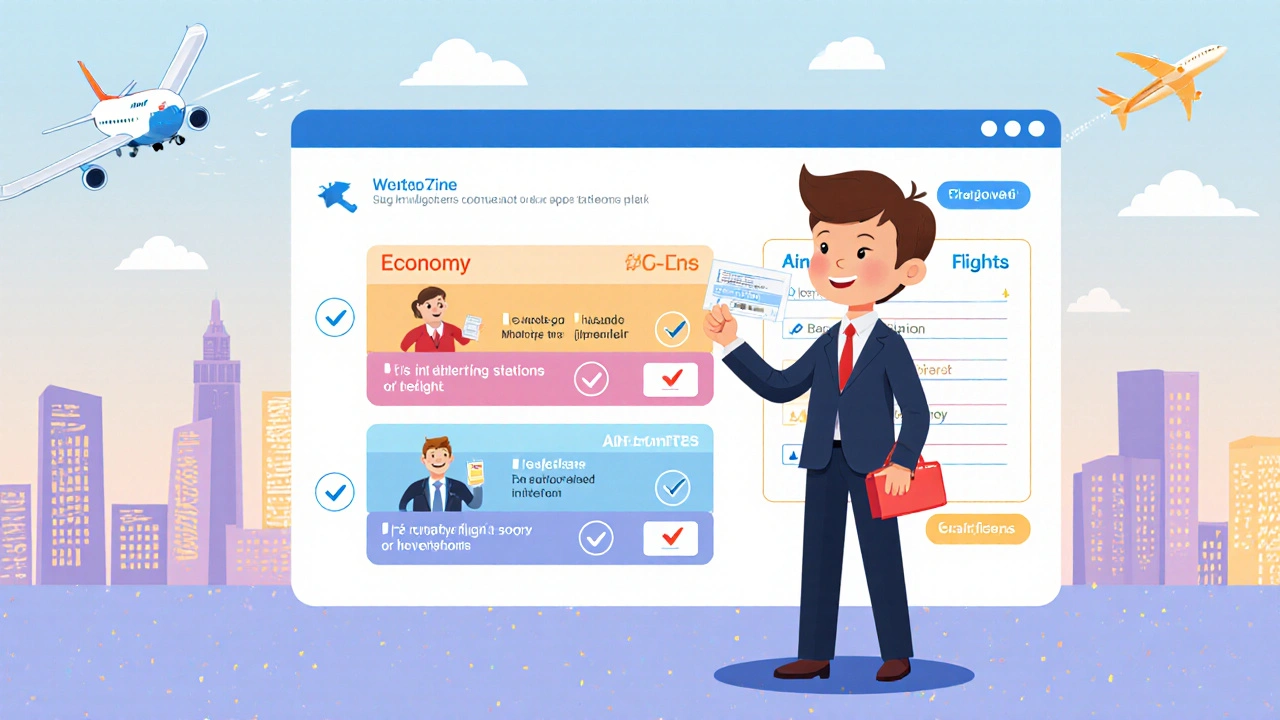Airfare Rules: How Booking Policies, Fees, and Restrictions Impact Your Travel Costs
When you buy a plane ticket, you’re not just paying for a seat—you’re agreeing to a set of airfare rules, the hidden terms airlines enforce on tickets, changes, refunds, and extras. Also known as fare conditions, these rules vary wildly between airlines, fare classes, and even departure times. Most travelers assume price is the only thing that matters, but the real cost often hides in the fine print: change fees, baggage charges, and non-refundable restrictions that can turn a $200 flight into a $600 mess if you need to adjust plans.
These airline booking policies, the internal guidelines airlines use to control pricing and customer flexibility are designed to maximize revenue, not customer convenience. A basic economy ticket might lock you into a non-refundable, non-changeable fare, while a premium ticket gives you free seat selection and no change fees. But here’s the catch: even within the same fare class, rules differ by route, season, and whether you booked directly or through a third party. Airlines like Southwest still offer free changes, but most others charge $200 or more just to switch dates—even if the new flight costs less. And forget about getting a refund if you miss your flight; that’s usually a full loss unless you’re covered by travel insurance or a rare consumer protection law.
Then there’s the baggage fees, the extra charges airlines slap on checked and even carry-on bags. What used to be free is now a $35–$60 add-on per bag on most carriers. Some airlines let you skip fees by paying for priority boarding or signing up for a credit card tied to their loyalty program. But if you’re flying budget airlines like Ryanair or Frontier, you’re paying for every ounce of weight—even your personal item if it’s too big. And don’t assume the fee is the same on the way back; airlines often change baggage rules per leg of the trip.
Change fees and cancellation policies are where most people get burned. A 2023 DOT report showed that over 60% of U.S. travelers faced unexpected fees when trying to modify a ticket. Airlines used to hide these costs behind confusing terminology like "fare difference" or "administrative fee," but now they’re more transparent—though no less expensive. If you cancel, you might get a credit good for a year, but it can’t be transferred, and you’ll lose any unused portion if you don’t use it in time. And if your flight is canceled by the airline? You’re entitled to a refund—but only if you didn’t accept a voucher. Many travelers don’t know this, and airlines count on it.
What you’ll find in these posts aren’t generic tips or fluff. You’ll see real breakdowns of how major airlines structure their airfare rules, what change fees actually cost across carriers, how baggage policies have evolved since 2020, and which airlines still offer the most flexibility for travelers who need it. No sales pitches. No sponsored content. Just clear, factual comparisons that help you spot the traps before you book. Whether you’re flying for work, family, or a last-minute escape, understanding these rules saves money, reduces stress, and keeps you in control—not the airline.



